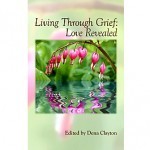At times there can be a reaction of sudden and deep sadness to learning of the death of someone you never met or knew long ago or met briefly.
This can occur, also, when a well liked public figure dies, such as an entertainer or a beloved leader. A few of many public figures I and multitudes of people have mourned include President John F. Kennedy, Reverend Martin Luther King, Jr., and Princess Diana. A matter of weeks ago, many were affected by the death of actor Robin Williams.
 The reason I am writing about this is so you can recognize your reactions as legitimate grief, and then you can take some actions of self care for your grieving. If you notice thoughts such as “I wasn’t close to her,” or “I never even met him, so it’s really no big deal,” please be compassionate with yourself.
The reason I am writing about this is so you can recognize your reactions as legitimate grief, and then you can take some actions of self care for your grieving. If you notice thoughts such as “I wasn’t close to her,” or “I never even met him, so it’s really no big deal,” please be compassionate with yourself.
I was spurred to write this post from waves of sadness I experienced this week when I learned of the death of someone I met during a weekend retreat four years ago. While the raw pain has subsided, I am aware as I type right now of a soft aching sensation in my heart and some tightness near my throat.
There is no Universal Rule that says one cannot possibly feel grief unless there is a close personal relationship with the one who has died. Grief is a natural reaction to loss. It shows up when it shows up.
The main intensity of your grief reactions in this type of situation might be over within a short time. Whatever the length of time, it is likely to be easier on you if you accept the experience as being grief and take actions that can support yourself through it.
7 Ways to Help Yourself When Grieving
Talk: If talking often helps you, seek out someone you trust. Maybe start by saying you’d like him to listen and let you ramble for a little while. You have a chance to get off your chest how you are feeling in response to the death.
2. Cry: Let yourself cry, if this is how you are feeling. Find a safe place and time, and let the tears flow. Take slow, deep breaths during the moments the flow of your tears is ebbing.
3. Distract: Distract yourself for a while. Allow yourself to become focused in whatever feels engaging – a book, a movie, a conversation, tasks at work or at home, creative expression, exercise, music.
4. Exercise: Do some sort of exercise. Go for an easy walk. Get outside for a bit, if the weather is nice. If you have a regular exercise routine, do at least a portion of it. Drink plenty of water as you exercise.
5. Water. As mentioned in #4, drink plenty of water. Consider drinking at least 6 cups of 8 ounces each a day, especially while you are feeling grief. It is important to stay hydrated. In particular, I advise against drinking alcohol, as it can cut off the natural grief expression and add more distressful dimensions to your emotional discomfort. Please don’t opt to “numb out” now, the grief will just come back later to bite you.
6. Write: Write a letter or journal entry to yourself about what you are feeling. No one will see it but you, and you can tear it up afterward. If you want to write also as if to the one who has died, you can give yourself permission to do this. (Or, write a blog post about grief, which is what I’m doing right now.)
7. Rest: Make a point of getting to bed to allow the amount of sleep time you know works best for you. Also, take naps, when possible.
Plus a step #8: Rinse and repeat. As many shampoo bottles show on the labels, rinse and repeat. In this case, whichever of the above steps are working for you + any others you have discovered, do more of them.
 While there are many more self-care actions to support healthy grieving, I like a brief list when I’m in emotional pain. It is easier for me to focus on and to process.
While there are many more self-care actions to support healthy grieving, I like a brief list when I’m in emotional pain. It is easier for me to focus on and to process.
The 7 Ways, above, can work for grieving any loss. The list is not limited to a loss of someone not so close to you.
Another element that can happen is that one of these grief responses to the death of a person who is somewhat distant can hook into a previous loss you sustained that you have not had support in experiencing. When this happens, there is an opportunity to find support now for engaging an older grief in ways that fit your current needs.
More Sources of Support
- You will see other forms of grief support in How to Live Through Intense Grief.
- Most local hospices have well trained counselors and volunteers to talk with you about what you are experiencing due to loss. Also, they often have bereavement support groups you can attend.
- Find a therapist who specializes in grief support. (Note: Not all therapists have received extensive training related to grief.) Hospices often keep a list of nearby trained grief therapists.
- This is part of my story of ways writing helped me while grieving the death of my husband, Write Where You Are, to Free Your Heart.
- OpenToHope is a site with a wealth of articles and radio broadcasts on many aspects of grieving. Their mission is to help people find hope after loss.
 Blissings, Dena
Blissings, Dena
Thank you for being here. If this is one of your first visits, please consider subscribing for free email or RSS updates.
If you liked this article, please share its gifts with your friends & family.








